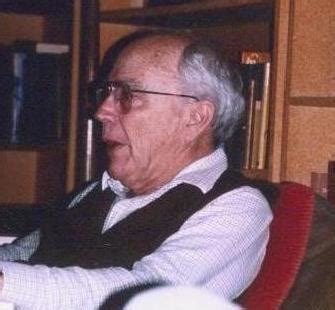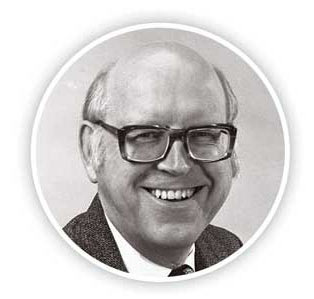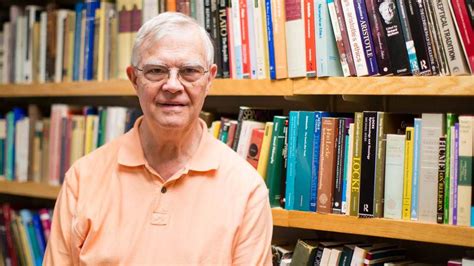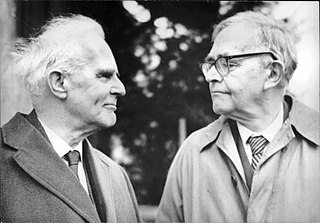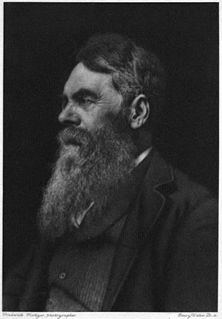Top 361 Plato S Quotes & Sayings - Page 6
Explore popular Plato S quotes.
Last updated on April 19, 2025.
Complaisance, though in itself it be scarce reckoned in the number of moral virtues, is that which gives a lustre to every talent a man can be possessed of. It was Plato's advice to an unpolished writer that he should sacrifice to the graces. In the same manner I would advise every man of learning, who would not appear in the world a mere scholar or philosopher, to make himself master of the social virtue which I have here mentioned.
I intend Deaths in Venice to contribute both to literary criticism and to philosophy. But it's not "strict philosophy" in the sense of arguing for specific theses. As I remark, there's a style of philosophy - present in writers from Plato to Rawls - that invites readers to consider a certain class of phenomena in a new way. In the book, I associate this, in particular, with my good friend, the eminent philosopher of science, Nancy Cartwright, who practices it extremely skilfully.
A writer must always try to have a philosophy and he should also have a psychology and a philology and many other things. Without a philosophy and a psychology and all these various other things he is not really worthy of being called a writer. I agree with Kant and Schopenhauer and Plato and Spinoza and that is quite enough to be called a philosophy. But then of course a philosophy is not the same thing as a style.
Plato used the dialogue format because the exchange of views, the posing and answering of questions, showed that understanding is a living, dynamic process. He distrusted writing because the settled character of the written word makes it look as if truth can be fixed and made to stand still. It is worth remembering that this greatest advocate of the objective reality of truth also believed that our access to that truth was sustained in reasoned discussion.
The light dove, in free flight cutting through the air the resistance of which it feels, could get the idea that it could do even better in airless space. Likewise, Plato abandoned the world of the senses because it posed so many hindrances for the understanding, and dared to go beyond it on the wings of the ideas, in the empty space of pure understanding.
If the modern spirit, whatever that may be, is disinclined towards taking the Lord's word at its face value (as I hear is the case), we may observe that Isaiah's testimony to the character of the masses has strong collateral support from respectable Gentile authority. Plato lived into the administration of Eubulus, when Athens was at the peak of its jazz-and-paper era, and he speaks of the Athenian masses with all Isaiah's fervency, even comparing them to a herd of ravenous wild beasts.
There have been many men who left behind them that which hundreds of years have not worn out. The earth has Socrates and Plato to this day. The world is richer yet by Moses and the old prophets than by the wisest statesmen. We are indebted to the past. We stand in the greatness of ages that are gone rather than in that of our own. But of how many of us shall it be said that, being dead, we yet speak?
While the poet entertains he continues to search for eternal truths, for the essence of being. In his own fashion he tries to solve the riddle of time and change, to find an answer to suffering, to reveal love in the very abyss of cruelty and injustice. Strange as these words may sound I often play with the idea that when all the social theories collapse and wars and revolutions leave humanity in utter gloom, the poet--whom Plato banned from his Republic--may rise up to save us all.
Others of them employ outward marks ... They style themselves Gnostics. They also possess images, some of them painted and others formed from different kinds of material. They maintain that a likeness of Christ was made by Pilate at that time when Jesus lived among them. They crown these images, and set them up along with the images of the philosophers of the world, such as Pythagoras, Plato, and Aristotle, and the rest. They have also other modes of honoring these images just like the Gentiles.
The study of the properties of numbers, Plato tells us, habituates the mind to the contemplation of pure truth, and raises us above the material universe. He would have his disciples apply themselves to this study, not that they may be able to buy or sell, not that they may qualify themselves to be shopkeepers or travelling merchants, but that they may learn to withdraw their minds from the ever-shifting spectacle of this visible and tangible world, and to fix them on the immutable essences of things.
To saya man is fallen in love,or that he is deeply in love,or up to the ears in love,and sometimes even over head and ears in it,carries an idiomatical kind of implication, that love is a thing below a man:this is recurring again to Plato's opinion, which, with all his divinityship,I hold to be damnable and heretical:and so much for that. Let love therefore be what it will,my uncleToby fell into it.
If Christianity cannot present evidence that the soul is immortal, then they have nothing to offer the masses, eternity in heaven with God or hold over their heads suffering forever in hell. They need the immortality of the soul. I did my research, it's not in the Bible, so what do they do? They relied on Judaism, which has always believed in the immortality of the soul. I start checking on that and I look in the Judaica Encyclopedia and what do I find? Their remark that Judaism probably got the immortality of the soul from the Greeks, so I go back further, where it all started with Plato.
We are finally living in Plato's cave, if we consider how those who were imprisoned within the cave - who could do nothing but watch those shadows passing on the back wall - were convinced that those shadows were their one and only reality. I see a profound similarity to all this in the epoch we're now living in. We no longer live simply through images: we live through images that don't even exist, which are the result not of physical projection but of pure virtuality.
The student is half afraid to meet one of the great philosophers face to face. He feels himself inadequate and thinks he will not understand him. But if he only knew, the great man, just because of his greatness, is much more intelligible than his modern commentator. The simplest student will be able to understand, if not all, yet a very great deal of what Plato said; but hardly anyone can understand some modern books on Platonism.
Plato spoke of the necessity for divine madness in the poet. It is a frightening thing to open oneself to this strange and dark side of the divine; it means letting go our sane self control, that control which gives us the illusion of safety. But safety is only an illusion, and letting it go is part of listening to the silence, and to the spirit.
People are mostly sane enough, of course, in the affairs of common life: the getting of food, shelter, and so on. But the moment they attempt any depth or generality of thought, they go mad almost infallibly. The vast majority, of course, adopt the local religious madness, as naturally as they adopt the local dress. But the more powerful minds will, equally infallibly, fall into the worship of some intelligent and dangerous lunatic, such as Plato, or Augustine, or Comte, or Hegel, or Marx.
Homosexuality is assuredly no advantage, but it is nothing to be ashamed of, no vice, no degradation; it cannot be classified as an illness; we consider it to be a variation of the sexual function, produced by a certain arrest of sexual development. Many highly respectable individuals of ancient and modern times have been homosexuals, several of the greatest men among them (Plato, Michelangelo, Leonardo da Vinci, etc.). It is a great injustice to persecute homosexuality as a crime--and a cruelty, too. If you do not believe me, read the books of Havelock Ellis.
It has been a long road from Plato's Meno to the present, but it is perhaps encouraging that most of the progress along that road has been made since the turn of the twentieth century, and a large fraction of it since the midpoint of the century. Thought was still wholly intangible and ineffable until modern formal logic interpreted it as the manipulation of formal tokens. And it seemed still to inhabit mainly the heaven of Platonic ideals, or the equally obscure spaces of the human mind, until computers taught us how symbols could be processed by machines.
Philosophy, beginning in wonder, as Plato and Aristotle said, is able to fancy everything different from what it is. It sees the familiar as if it were strange, and the strange as if it were familiar. It can take things up and lay them down again. It rouses us from our native dogmatic slumber and breaks up our caked prejudices.
It must be so,-Plato, thou reasonest well! Else whence this pleasing hope, this fond desire, This longing after immortality? Or whence this secret dread and inward horror Of falling into naught? Why shrinks the soul Back on herself, and startles at destruction? 'T is the divinity that stirs within us; 'T is Heaven itself that points out an hereafter, And intimates eternity to man. Eternity! thou pleasing, dreadful thought!
Manlius ... took care in his invitations, actively sought to exclude from his circle crude and vulgar men like Caius Valerius. But they were all around; it was Manlius who lived in a dream world, and his bubble of civility was becoming smaller and smaller. Caius Valerius, powerful member of a powerful family, had never even heard of Plato. A hundred, even fifty years before, such an absurdity would have been inconceivable. Now it was surprising if such a man did know anything of philosophy, and even if it was explained, he would not wish to understand.
In those days it was possible for a Greek to flee from an over-abundant reality as though it were but the tricky scheming off the imagination-and to flee, not like Plato into the land of eternal ideas, into the workshop off the world-creator, feasting one's eyes on the unblemished unbreakable archetypes, but into the rigor mortis off the coldest emptiest concept off all, the concept of being.
Teaching Plato in Palestine shows how philosophical thinking can illuminate important topics-in particular, the problem of finding ways to engage people with opposed ideologies in fruitful debate. The lively narratives, based on the author's experiences of working with various groups interested in using philosophical tools to clarify their thought and action, will engage a wide range of readers.
So Socrates was a kind of gadfly. He was a sort of philosophical urban gorilla hanging around in the middle of Athens, asking these peculiar questions of everybody - important people, young men, slaves - questions that had to do with ultimately what's the life that's worth living. And Plato was one of the young men who hung around him, a very aristocratic young man, came from a very old, important family.
Aeschylus and Plato are remembered today long after the triumphs of Imperial Athens are gone. Dante outlived the ambitions of thirteenth century Florence. Goethe stands serenely above the politics of Germany, and I am certain that after the dust of centuries has passed over cities, we too will be remembered not for victories or defeats in battle or in politics, but for our contribution to the human spirit.
Plato--who may have understood better what forms the mind of man than do some of our contemporaries who want their children exposed only to "real" people and everyday events--knew what intellectual experience made for true humanity. He suggested that the future citizens of his ideal republic begin their literary education with the telling of myths, rather than with mere facts or so-called rational teachings.
Plato in his dialogue The Phaedo says that whereas sticks and stones are both equal and unequal, (so maybe what that means is that each stick is going to be equal to some other sticks and unequal to some other sticks, so equal to the stick on the left maybe but shorter than the stick on its right) the form of equal is going to be just equal, and it won't partake of inequality at all. And it will be the cause of equality in things that are equal, for example, equal sticks and stones.
When has the world seen a phenomenon like this? a lonely uninstructed youth, coming from amid the moral darkness of Galilee, even more distinct from His age, and from every thing around Him, than a Plato would be rising up in some wild tribe in Oregon, assuming thus a position at the head of the world and maintaining it, for eighteen centuries, by the pure self-evidence of His life and doctrine.
We know only what we do, what we make, what we construct; and all that we make, all that we construct, are realities. I call them images, not in Plato's sense (namely that they are only reflections of reality), but I hold that these images are the reality itself and that there is no reality beyond this reality except when in our creative process we change the images: then we have created new realities.
How will you go about finding that thing the nature of which is totally unknown to you?" (Plato) The things we want are transformative, and we don’t know or only think we know what is on the other side of that transformation. Love, wisdom, grace, inspiration- how do you go about finding these things that are in some ways about extending the boundaries of the self into unknown territory, about becoming someone else?
For the Platonic or Aristotelian philosophy, it is of no importance whether Plato or Aristotle ever lived. For the mystical practice of an Indian, Persian, Chinese, or Neo-Platonic mystic it is a matter of indifference whether Rama, Buddha, Laotse, or Porphyrius are myths or not. The mystic has no personal relation to them. It is not here a question of somebody telling me the truth which of myself I cannot find, but of my finding an access to the depths of the world in the depths of my soul.
All that is good in our history is gathered in libraries. At this moment, Plato is down there at the library waiting for us. So is Aristotle. Spinoza is there and so is Kats. Shelly and Byron adn Sam Johnson are there waiting to tell us their magnificent stories. All you have to do is walk in the library door and the great company open their arms to you. They are so happy to see you that they come out with you into the street and to your home. And they do what hardly any friend will-- they are silent when you wish to think.
Society is an illusion to the young citizen. It lies before him in rigid repose, with certain names, men, and institutions, rootedlike oak-trees to the centre, round which all arrange themselves the best they can. But the old statesman knows that society is fluid; there are no such roots and centres; but any particle may suddenly become the centre of the movement, and compel the system to gyrate round it, as every man of strong will, like Pisistratus, or Cromwell, does for a time, and every man of truth, like Plato, or Paul, does forever.
Let it not, therefore, be said that the Sovereign is not subject to the laws of his State; since the contrary is a true proposition of the right of nations, which flattery has sometimes attacked but good princes have always defended as the tutelary divinity of their dominions. How much more legitimate is it to say with the wise Plato, that the perfect felicity of a kingdom consists in the obedience of subjects to their prince, and of the prince to the laws, and in the laws being just and constantly directed to the public good!
Here is the mistake of the cut-and-dried man of culture. He goes about with the secret of having learned to appreciate the "grandstyle." He has lived in Homer till he can recall the roll of that many-sounding sea. He has pored over the lofty and pictorial thought of Plato till he begins to pique himself upon its grandeur. His fancy has been fed on the quaint old-world genius of Herodotus, his judgment on the melancholy wisdom of Tacitus and the complacent cynicism of Gibbon--and of all this he is conscious and proud.
I came to Paul at quite an early age, having already studied Plato and Aristotle; and I found Paul easily their intellectual equal, though he was handling these amazing questions about God, Jesus, Israel, faith and so on. He continues to be an amazingly stimulating thinker, especially when we try to understand the flow of thought in letter after letter rather than just combing him for a few verses on 'our favourite topics', which, sadly, some Christian teachers do just as some journalists and broadcasters do!
I am Plato's Republic. Mr. Simmons is Marcus. I want you to meet Jonathan Swift, the author of that evil political book, Gulliver's Travels! And this other fellow is Charles Darwin, and-this one is Schopenhauer, and this one is Einstein, and this one here at my elbow is Mr. Albert Schweitzer, a very kind philosopher indeed. Here we all are, Montag. Aristophanes and Mahatma Gandhi and Gautama Buddha and Confucius and Thomas Love Peacock and Thomas Jefferson and Mr. Lincoln, if you please. We are also Matthew, Mark, Luke, and John.
Philosophy, for Plato, is a kind of vision, the 'vision of truth'...Everyone who has done any kind of creative work has experienced, in a greater or less degree, the state of mind in which, after long labour, truth or beauty appears, or seems to appear, in a sudden glory - it may only be about some small matter, or it may be about the universe. I think that most of the best creative work, in art, in science, in literature, and in philosophy, has been a result of just such a moment.
Not only were the Jews expecting the birth of a Great King, a Wise Man and a Saviour, but Plato and Socrates also spoke of the Logos and of the Universal Wise Man 'yet to come'. Confucius spoke of 'the Saint'; the Sibyls, of a 'Universal King'; the Greek dramatist, of a saviour and redeemer to unloose man from the 'primal eldest curse'. All these were on the Gentile side of the expectation. What separates Christ from all men is that first He was expected; even the Gentiles had a longing for a deliverer, or redeemer. This fact alone distinguishes Him from all other religious leaders.
The breakdown of Plato's philosophy is made apparent in the fact that he could not trust to gradual improvements in education to bring about a better society which should then improve education, and so on indefinitely. Correct education could not come into existence until an ideal state existed, and after that education would be devoted simply to its conservation. For the existence of this state he was obliged to trust to some happy accident by which philosophic wisdom should happen to coincide with possession of ruling power in the state.
When a thought of Plato becomes a thought to me,--when a truth that fired the soul of Pindar fires mine, time is no more. When I feel that we two meet in a perception, that our two souls are tinged with the same hue, and do as it were run into one, why should I measure degrees of latitude, why should I count Egyptian years?
Musick is certainly a very agreeable Entertainment, but if it would take the entire Possession of our Ears, if it would make us incapable of hearing Sense, if it would exclude Arts that have a much greater Tendency to the Refinement of human Nature; I must confess I would allow it no better Quarter than Plato has done, who banishes it out of his Common-wealth.
Excellent teachers showered on to us like meteors: Biology teachers holding up human brains, English teachers inspiring us with a personal ideological fierceness about Tolstoy and Plato, Art teachers leading us through the slums of Boston, then back to the easel to hurl public school gouache with social awareness and fury.
The Sophists had this idea: Forget this idea of what's true or not—what you want to do is rhetoric; you want to be able to persuade the audience and have the audience think you're smart and cool. And Socrates and Plato, basically their whole idea is, "Bullshit. There is such a thing as truth, and it's not all just how to say what you say so that you get a good job or get laid, or whatever it is people think they want.
I want you teabaggers out there to understand one thing: while you idolize the Founding Fathers and dress up like them, and smell like them, I think it's pretty clear that the Founding Fathers would have hated your guts. And what's more, you would've hated them. They were everything you despise. They studied science, read Plato, hung out in Paris and thought the Bible was mostly bulls**t.
Plato said that poets should be excluded from the ideal republic because they are such liars. I am a poet, and I affirm that this is true. About no subject are poets tempted to lie so much as about their own lives; I know one of them who has floated at least five versions of his autobiography, none of them true. I of course - being also a novelist - am a much more truthful person than that. But since poets lie, how can you believe me?
God knows; I won't be an Oxford don anyhow. I'll be a poet, a writer, a dramatist. Somehow or other I'll be famous, and if not famous, I'll be notorious. Or perhaps I'll lead the life of pleasure for a time and then—who knows?—rest and do nothing. What does Plato say is the highest end that man can attain here below? To sit down and contemplate the good. Perhaps that will be the end of me too.
When I was young, we thought that Oscar Wilde was a great nobleman who had thrown his life away for love. Nothing could be less true. He slept with East Enders who were procured for him by Lord Alfred Douglas. He knew them only 'in Braille' - the curtains were never drawn back in the rooms in Oxford where he met those boys. It was the most sordid life you can imagine. And he was bleating about love and dragging the fair name of Mr. Plato into the trial - after a life like that?
So to the wretched writer I should like to say that there’s one body only whose request for your caresses is not vulgar, is not unchaste, untoward, or impolite: the body of your work itself; for you must remember that your attentions will not merely celebrate a beauty but create one; that yours is love that brings it own birth with it, just as Plato has declared, and that you should therefore give up the blue things of this world in favor of the words which say them
But progress in knowledge has made us aware of the superficiality of Plato's lumping of individuals and their original powers into a few sharply marked-off classes; it has taught us that original capacities are indefinitely numerous and variable. It is but the other side of this fact to say that in the degree in which society has become democratic, social organization means utilization of the specific and variable qualities of individuals, not stratification by classes.
When Catholicism goes bad it becomes the world-old, world-wide religio of amulets and holy places and priestcraft. Protestantism,in its corresponding decay, becomes a vague mist of ethical platitudes. Catholicism is accused of being too much like all the other religions; Protestantism of being insufficiently like a religion at all. Hence Plato, with his transcendent Forms, is the doctor of Protestants; Aristotle, with his immanent Forms, the doctor of Catholics.
There have been hermaphrodites around forever, Cal. Forever. Plato said that the original human being was a hermaphrodite. Did you know that? The original person was two halves, one male, one female. Then these got separated. That's why everybody's always searching for their other half. Except for us. We've got both halves already.
Today you can buy the Dialogues of Plato for less than you would spend on a fifth of whiskey, or Gibbon's Decline and Fall of the Roman Empire for the price of a cheap shirt. You can buy a fair beginning of an education in any bookstore with a good stock of paperback books for less than you would spend on a week's supply of gasoline.
The neo-conservative critics of leftist critics of mass culture ridicule the protest against Bach as background music in the kitchen, against Plato and Hegel, Shelley and Baudelaire, Marx and Freud in the drugstore. Instead, they insist on recognition of the fact that the classics have left the mausoleum and come to life again, that people are just so much more educated. True, but coming to life as classics, they come to life as other than themselves; they are deprived of their antagonistic force, of the estrangement which was the very dimension of their truth.
There is one mind common to all individual men. Every man is an inlet to the same and to all of the same. He that is once admitted to the right of reason is made a freeman of the whole estate. What Plato has thought, he may think; what a saint has felt, he may feel; what at any time has befallen any man, he can understand. Who hath access to this universal mind is a party to all that is or can be done, for this is the only and sovereign agent
...why did Plato say that poets should be chased out of the republic? Precisely because every poet and every artist is an antisocial being. He's not that way because he wants to be; he can't be any other way.... and if he really is an artist it is in his nature not to want to be admitted, because if he is admitted it can only mean he is doing something which is understood, approved, and therefore old hat - worthless. Anything new, anything worth doing, can't be recognized.
















